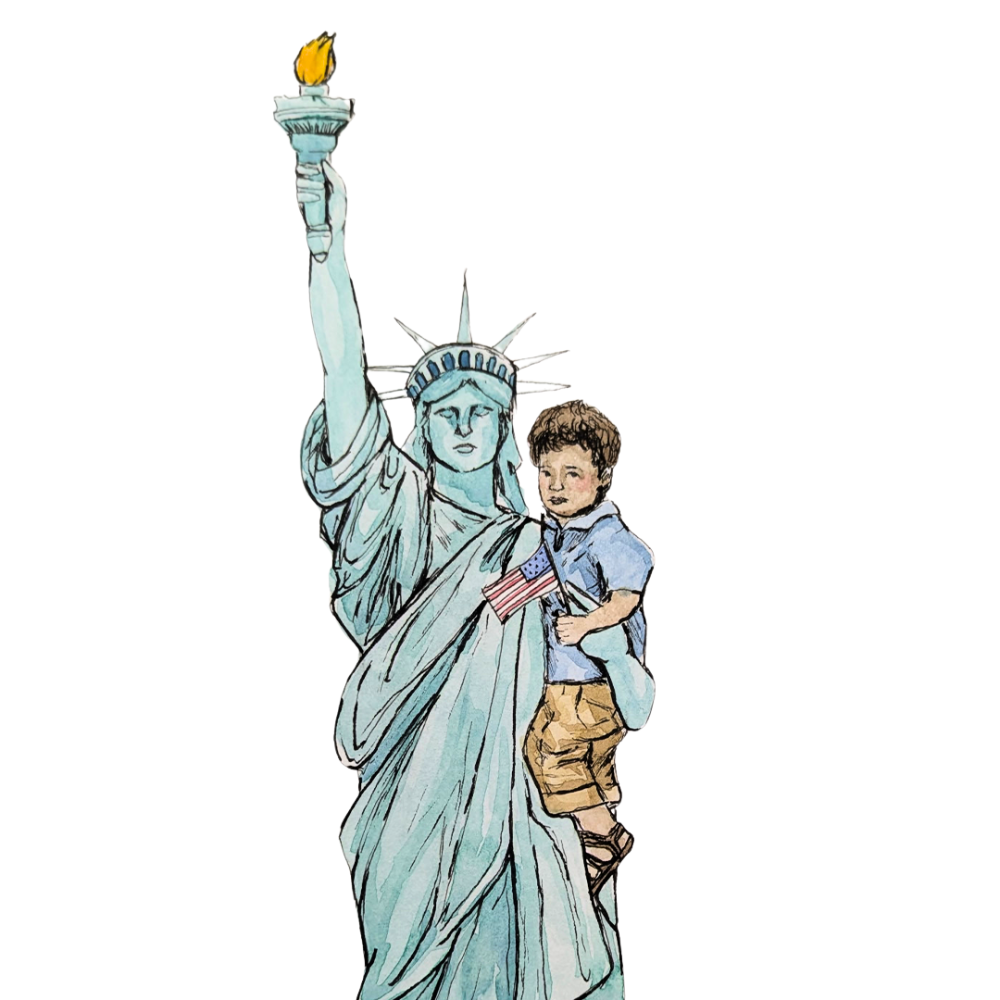
This story is syndicated from The U-High Midway, the newspaper of the University of Chicago Laboratory High School in Chicago, IL. The original version of the story ran here.
My family has always been mobile. In 1965, my grandparents left India and moved to England; then in 1973, they moved again to the United States.
They both had visas to work at a hospital in New York. Within a year, my aunt was born. She instantly became a citizen because of birthright citizenship — the constitutional right outlined in the 14th Amendment guaranteeing that anyone born on U.S. soil is granted that status.
The practice that has long been foundational for America’s position as a growing country on the global stage is now being challenged by the Trump administration. President Trump’s recent executive order, “Protecting the Meaning and Value of American Citizenship,” sobered me, even as courts put temporary holds on its reach. I worried about what it would mean for my family’s citizenship to come into question.
I also wondered what it would mean for a Democratic country built on adaptability and change to turn its back on its principles. Birthright citizenship in the United States dates back to the 1800s. In 1857, the Supreme Court ruled in Dred Scott v. Sandford that enslaved individuals and their descendants were not considered citizens of the United States. When Congress later abolished slavery in 1865, enslaved Black residents were still not considered citizens. However, ratification of the 14th Amendment in 1868 clarified that “All persons born or naturalized in the United States, and subject to the jurisdiction thereof, are citizens of the United States and of the State wherein they reside.” The Amendment began to empower formerly enslaved and free Black individuals with citizenship, and in 1898, the Supreme Court affirmed in United States v. Wong Kim Ark that the 14th Amendment applied not only to former enslaved individuals but to everyone born in the United States.
Birthright citizenship is a promise, and if Trump’s order becomes law, we would face an unsettling future as a nation. Birthright citizenship sits at the core of American values, denying the caste and legacy systems early immigrant Americans fled, and providing equal rights and civic inclusion to all Americans. Revoking this part of the Constitution would further divide different classes of citizens. A system based entirely on family history would not leave room for the people already in our lives to continue to contribute to American culture as our neighbors.
Birthright citizenship is the mark of a Democratic society, and the norm in the Western hemisphere, common across North America, Latin America, and South America. It’s a policy that understands how countries interact with one another, and how people’s lives through no fault of their own often must go “mobile.”
Trump is willing to field applications from wealthy immigrants, though, declaring this February that he’d like to set up a shortcut to citizenship for anyone who can pay $5 million dollars for the right.
People may think that America’s judges will save birthright citizenship, but this is by no means guaranteed. In demonizing birthright citizenship, President Trump is dangerously enabling myths about this country’s past, present, and future, claiming that immigrants are a drain on the American dream instead of seeing them as examples of that dream in action. If the constitutionality of his order ultimately lands at the conservative-leaning Supreme Court’s discretion, his wishes to rewrite history may very well become our reality.
